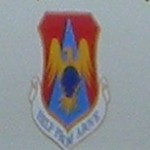“…Saudi Arabia is left to draw up the Middle East’s new map.”-Haaretz, 25 July 2012
Recently an Israeli newspaper (Haaretz) published an article on Kingdom of Saudi Arabia’s new intelligence boss; Bandar bin Sultan.
The following quotes from the article show that the so called revolution in Syria is actually an outside invasion, and that the United States is in bed with al Qaeda (after all it was the U.S. that came up with the name al Qaeda).
“…the main reason for his appointment now is that Saudi Arabia is preparing for the next stage in Syria, after President Bashar Assad leaves the political stage one way or another and Syria becomes a battleground for influence.”
“…his [Bandar’s] wife was investigated by [U.S.] Congress a decade ago about her connections to Al-Qaida…”-Saudi Arabia is ruled by royalists who are Salafi/Wahhabi Muslims, the same Islamic group that Osama bin Laden was part of, the same Islamic group that most of the members of the U.S. named al Qaeda belong to, the same Islamic group that the 9/11 attackers belonged to. 15 of the 19 hijackers on 11 September 2001, came from Saudi Arabia, not from Afghanistan, not from Iraq, not from Libya, not from Syria and not from Iran. In fact none of the 9/11 attackers were from Afghanistan, Iraq, Iran, Libya or Syria!
“…Bandar is considered the CIA’s man in Riyadh.”
“Bandar is a member of the part of the royal family that opposes the revolutions in the Arab states….”-This is proof that what happened in Libya, and what is happening in Syria are not revolutions
“…Bandar supported sending troops to the small kingdom of Bahrain next door to quell the Shi’ite revolt…”-Bahrain is also the HQ of the U.S. Navy’s 5th Fleet
“…also moved fast to support the new [military] regime in Cairo, depositing more than $3 billion as a guarantee at the Egyptian central bank.”-An attempt to stop the Egyptian Revolution from succeeding.
“…Bandar was the one behind the decision to give money to the Syrian rebels, and even to buy weapons for them. They say the Saudi demand that Assad step down is part of Bandar’s strategy, which guides the kingdom far more than the positions of the 88-year-old king, whose health is failing.”
“…Saudi policy on Syria is being closely coordinated with the United States…”









